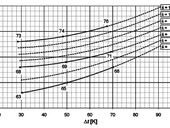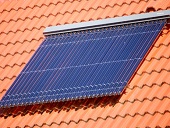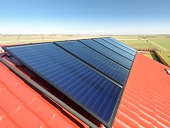Due to rising energy prices heating systems face a number of disadvantages associated with the use of central heating supplies to heat residential and non-residential spaces. This is a strong trend in condominium owned residential buildings in the care of SVJ, in rental housing it is almost non existent and it is contradictory in cooperative housing, which is a modification or rental housing.
Archiv článků od 8.3.2010 do 23.8.2010
CPP is on the brim of a big transformation. For more than 1,5 million flats, council heating means the most comfortable, and we still believe the most ecological, heating method. That is because the centralisation of heating allows the deployment of advanced technology that is more efficient, environmentally friendly and economical. This article offers a brief explanation on how to economically optimise the processes and systems to facilitate the transformation of CPP systems.
Sophisticated heating solutions lead to the fact that if at any given stage of the thermal insulation a TRV is properly fit and adjusted and, at the same time, a sophisticated substation solution is installed, one that will “know” how to prepare and maintain the required parameters, mainly during the heating season, then there will be nothing to renovate or solve during the lifespan of the heating station, other than adjusting the temperature and hydraulic parameters correctly.
The following contributions, which deal with this problematic, consider the impact of high heat resistance of the walling on the thermal comfort and the design of heating ventilations systems, which are still perceived, as it is the case in buildings with classical walling, therefore, to have lower thermal resistance. For instructions to formulate the effect of walling on the thermal comfort and technical equipment, a general comparison of both the following cases is made, which is simply called building with high thermal resistance of external walls for a low-energy house, and a building with classical walling parameters (e.g. housing estate from the past) as a standard house. The articles are not of exact technical nature and deal with regularly updated dependencies and sometimes refer to previously applicable legal provisions.
Examples of projects in Energy Performance Contracting
First two projects by the Energy Performance Contracting were prepared in the Czech Republic in 1993. From that time about 200 projects were implemented. The investment for the projects footed up to the total amount about 3 billion CZK. The highest number of the projects was implemented in school buildings with investment from one till ten million CZK. A lot of projects were implemented in buildings of healthcare service. On examples of implemented projects are described main features of the EPC projects for hospitals (the biggest project with investment over 100 million CZK), for schools (mostly smaller projects) or for more buildings in one public tender (municipalities or regions).
The EPC and its relations with other activities in connections with energy savings
In 2006 the Directive 2006/32/EC on energy end-use efficiency and energy services was adopted for the support of international activities on development of energy services. The obligation of each EU member state is prepare and submit to the Commission the Energy Efficiency Action Plan in roughly three years cycles. In relation to the Directive other activities were supported by EC under the Intelligent Energy Europe Programme, as projects: the Concerted Action on the ESD, ChangeBest, EESI or Pernament. Internal Czech initiative is under activities of Czech ESCOs, which are preparing Association of energy services companies.
Radiant heating panels hanging in large spaces, with a heating medium of warm or hot water, have been permanently buried in the subconscious of the heating community. In order to make this heating system more economical it is necessary to deal with every detail of the design, both in the structural terms of the space and the technical solutions of the system itself.
In the first part of the article is a brief overview of the market of collectors of solar radiation in the Czech Republic, the basic layout of different types of collectors and major part of solar systems. Following parts provide some basic connection of solar systems for various heating load (hot water, heating, swimming pool) and a simplified design absorber area. Each scheme is briefly described its function. In conclusion, it is marked possible connections of storage tanks for different performance.
The problematic of energy savings should not be limited only to thermal insulation and occasional use of alternative energy sources. The energy used not only for heating, but also for ventilation and air conditioning. Significantly affect the consumption requirements, deciding which areas will be heated and at what temperatures. Energy is needed to produce construction materials, their transportation and eventual waste handling. The lifespan of the proposed construction and the complexity of its liquidation should be one of the essential criteria when deciding on contemplated modifications. It is necessary to consider buildings as architectural heritage.
In the first part of the article is a brief overview of the market of collectors of solar radiation in the Czech Republic, the basic layout of different types of collectors and major part of solar systems. Following parts provide some basic connection of solar systems for various heating load (hot water, heating, swimming pool) and a simplified design absorber area. Each scheme is briefly described its function. In conclusion, it is marked possible connections of storage tanks for different performance.
This contribution summarizes utilizing of co-generation and tri-generation systems for effective electricity, heat and cool production. A co-generation and a tri-generation offer more effective utilizing of primary energy sources in comparison with separate production of different kinds of energy. This contribution describes actual state in the Czech Republic in year 2009.
The article describes a new way to control the output of heating systems, redefining the relationship between control and controlled variables, includes the equations for designing control actuators, analyses the importance of signal values and sets the conditions for total savings of the heat gain regulatory processes in thermal-hydraulic systems. In addition, it provides some key information for field measurement and control.
Advantages of the EPC methodology in comparison to other solutions
EPC methodology has a lot of advantages in comparison to other solutions on reconstruction of energy systems. The most important feature is assumption of risks, which customer would have to solve. The most important adoptable risk is guarantee for the savings. Unique feature of the EPC is the same motivation for the ESCO and for the customer, both to invest money by the most effective way (efficient quality equipment) and to reach as high savings as possible. It is very appealing that the ESCO is able to assure financing of the project. The customer needs not spend the investment during implementation of the energy efficient measures and he pays it back during the investment during the contract duration from saved operational costs.
Specific features of the EPC in the Czech Republic
The Energy Performance Contracting was introduced in the Czech Republic in 1992. From that time the EPC methodology was developed enough in the field of documentation for public tendering process and also in the field of text of contracts for the energy services provision. Unfortunately the state support of EPC project development is in the Czech Republic very weak. Nevertheless the situation is from ESCOs effort and interest of customers very good. By number of the EPC projects and size of the projects is the Czech Republic in Europe on the top position, including Germany, France, UK, Austria and Sweden.
From the point of view of national legislation, solar collectors are considered construction products and so, before being put on the market, must meet the requirements of Law no. 22/1997 “on technical requirements for products and of amending and supplementing certain laws, as amended, laying down technical requirements for products”. These requirements are specified in the Decree no. 163/2002, which lays down the technical requirements for specific buildings products, as amended by the Government Regulation no. 312/2005. Solar collectors are listed as Item 7 in Table 10 (technical equipment of buildings), in Annex 2 - “Equipment for heating spaces with no energy source a) in buildings b) for use, which are subject to required reaction to fire with specific levels ”
The output data of the calculations of thermally balanced heating systems demonstrate automatic heat savings of the control technology when exposed to heat gain. The dynamic behaviour of systems has been demonstrated, and for the first time the changes in operating parameters that occur when they are exposed to heat gain have been quantified. The results show that thermally balanced heating systems save substantially more energy.
Today we have detailed, scientifically based evidence tested in practice, revealing that the construction of new buildings and the renovation of old ones can reduce their energy consumption to values lower than 10% of the current average. This ability of architects, planners, construction workers and companies has arrived just in time to help us avoid the worst consequences of climate change.
Nowadays, the support for the production is renewable energy is growing. Biomass is among the important sources of renewable energy. It can be used in biogas plants as a raw, organic material of various origins, or as a “dry” biomass with low moisture, which is suitable for the production of energy through incineration. Both electricity and heating can be produced with biomass. And that is actually the problem. Whereas the production of electricity is supported, support for the production of heat is still missing.
This paper contains a proposal involving basic thermal calculations and how to manage water heating with a heating plate in hot water tanks. Heating plates are chosen because water heating can be clearly described from without the tanks with conventional heating relations, and designers can easily calculate all parameters. Tanks are used because they can reduce the heat output of the generators. We are speaking in this case about gas condensing water heating boilers.
The evaluation of the heating season of the calendar year 2009 serves the needs of producers and consumers of heating who work in a January-December annual scheme. It also provides input for energy experts to help them asses the operational energy consumption in buildings. In addition, it gives the figures for the inspection of boilers, according to Decree 276/2007. The evaluation is done according to the regulations on the rules of heating. The methodology used is similar to the one in the calculation tool “Dailydegrees” found in the TZB-info portal. The progression of heating consumption during the heating seasons can also be observed in it. It contains data starting from 1991, and allows to compare different periods.
The gross production of electricity from renewable sources in 2008 was 5.2% of the national gross electricity consumption. The share of renewable energy in primary sources reached 5%. The share of renewable energy sources in the production of thermal energy is around 7%. According to the Ministry of Industry and Commerce, in 2009 the share of electricity coming from renewable sources was 6.8% of the final electricity consumption in the Czech Republic.
zpět na aktuální články


